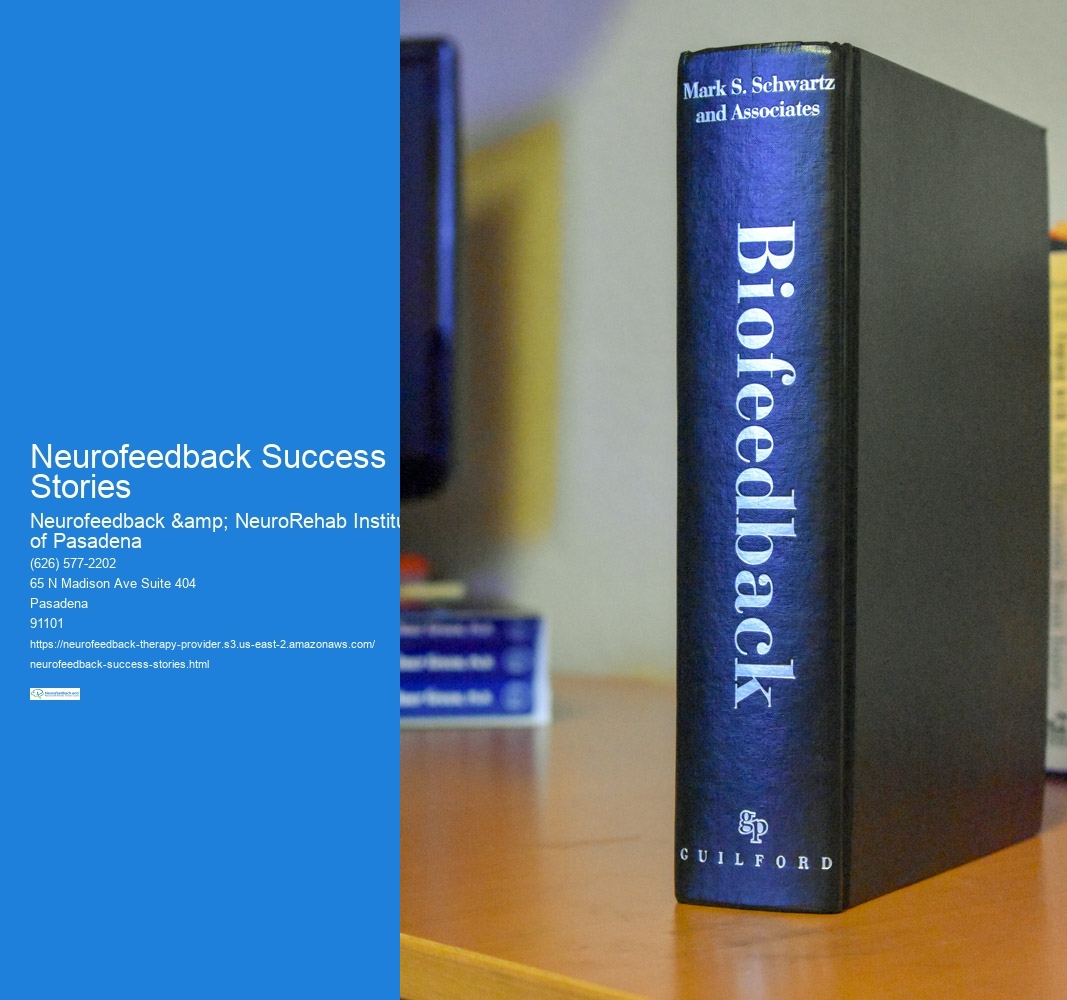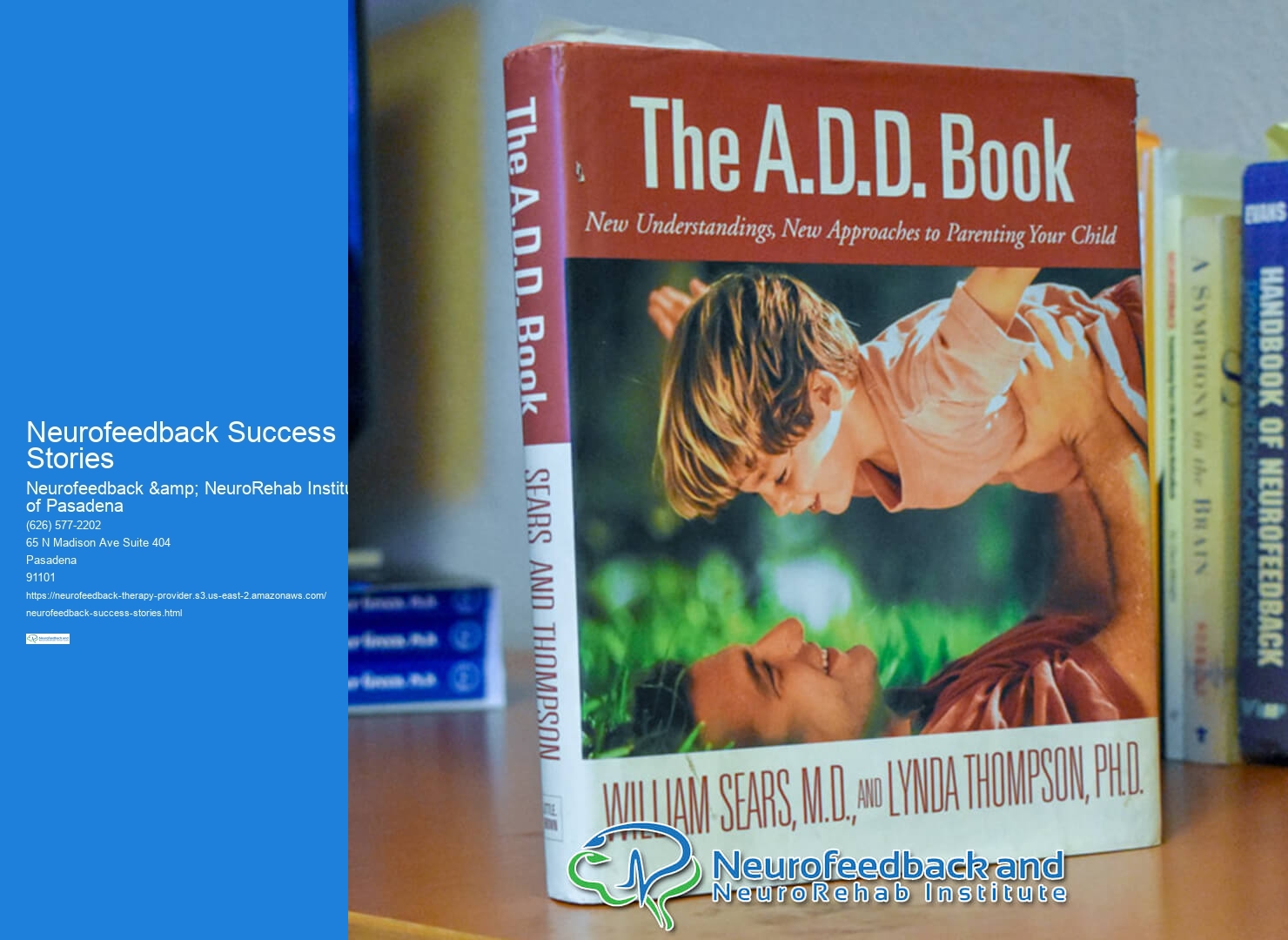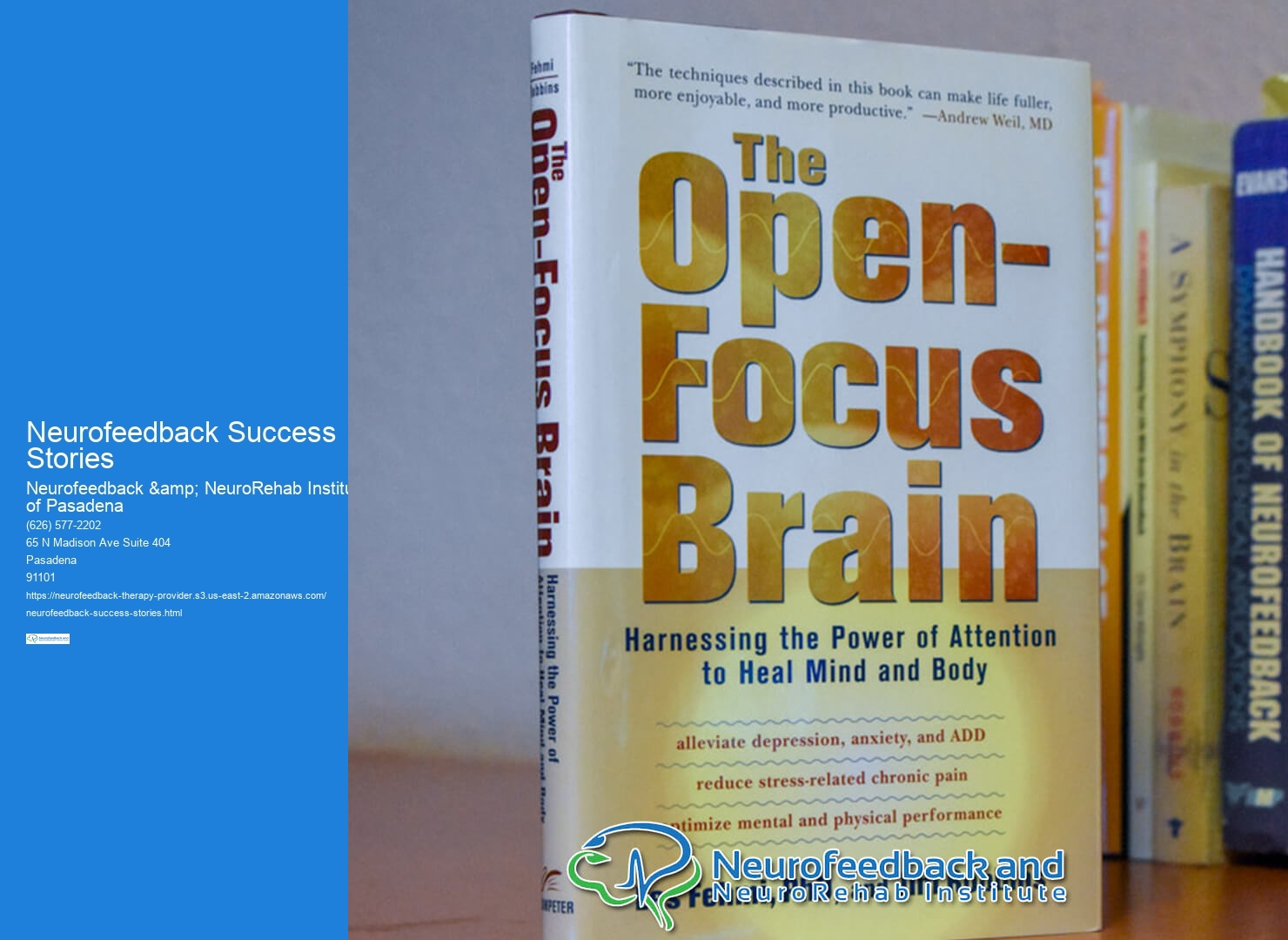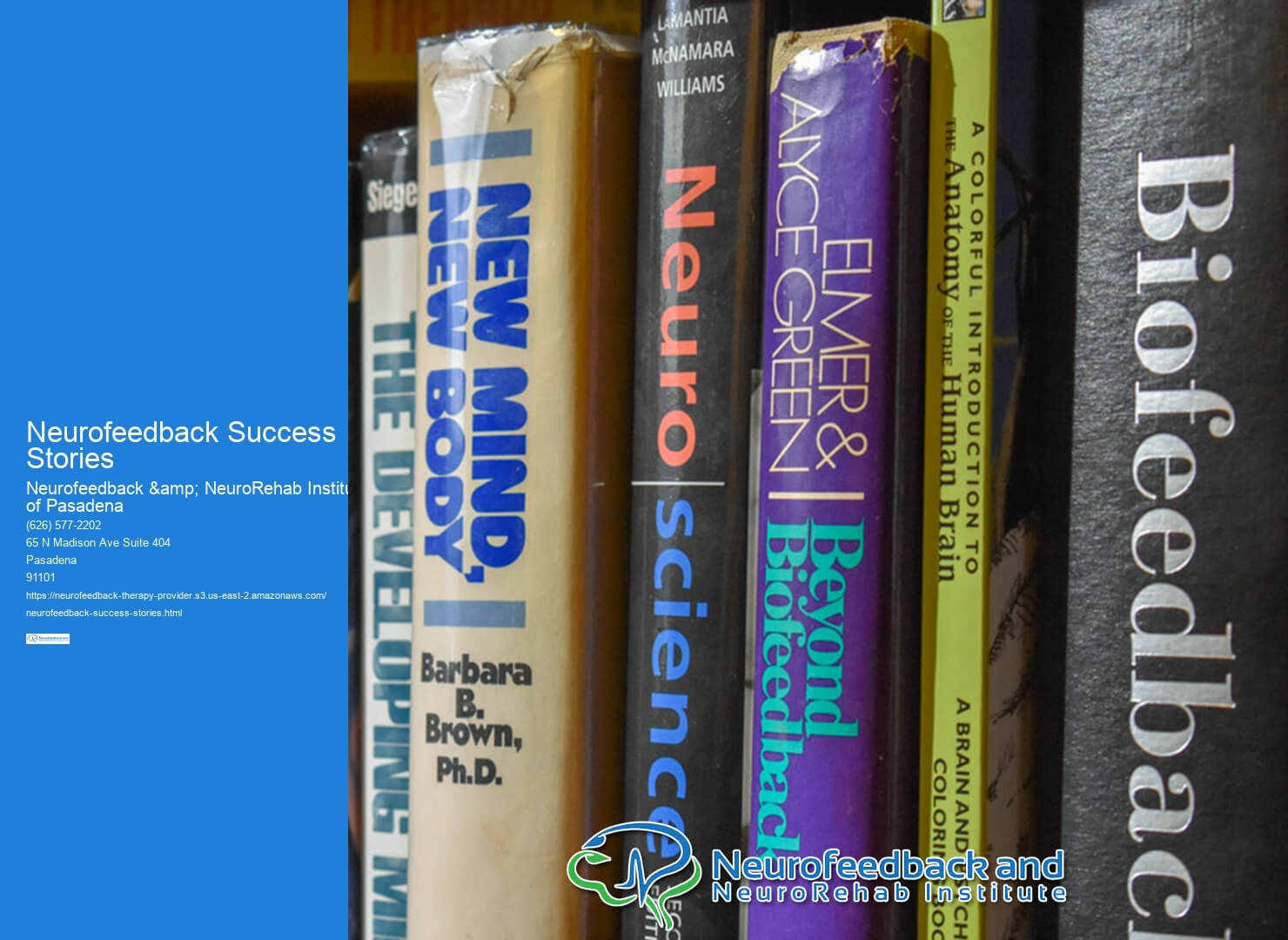

Neurofeedback is a non-invasive therapy that has shown promise in helping individuals manage anxiety and stress. Neurotherapy Specialist By using real-time monitoring of brainwave activity, neurofeedback helps individuals learn to regulate their brain function, leading to reduced anxiety and stress levels. This therapy targets specific brain regions associated with emotional regulation, promoting relaxation and a sense of calm. Through repeated sessions, individuals can experience long-term improvements in their ability to cope with anxiety and stress, leading to an overall better quality of life.
Neurofeedback has been found to be effective in treating ADHD and improving focus and attention. By training the brain to regulate its activity, neurofeedback can help individuals with ADHD enhance their attention span and reduce impulsivity. This therapy targets the brain's executive functioning areas, promoting self-control and sustained attention. Over time, individuals may experience improved concentration and cognitive performance, leading to better academic or work-related outcomes.
Neurofeedback TechnicianFor individuals with depression and mood disorders, neurofeedback offers potential benefits in regulating emotional states and promoting overall well-being. By targeting brain regions associated with mood regulation, neurofeedback aims to rebalance brain activity and promote more stable emotional states. This therapy can help individuals experience reduced symptoms of depression, improved mood regulation, and an overall enhanced sense of emotional stability.

Neurofeedback therapy works in addressing sleep disorders by targeting brainwave patterns associated with sleep regulation. By training the brain to achieve and maintain optimal sleep patterns, neurofeedback can help individuals improve their sleep quality and overall restfulness. This therapy aims to promote relaxation and reduce hyperarousal, leading to better sleep initiation and maintenance. Over time, individuals may experience improved sleep patterns and a reduction in sleep-related disturbances.
Neurofeedback may play a role in managing chronic pain by targeting brain regions associated with pain perception and processing. By modulating brainwave activity, neurofeedback aims to reduce the impact of chronic pain on an individual's daily life. This therapy can help individuals experience decreased pain perception, improved pain tolerance, and an overall reduction in the impact of chronic pain on their daily functioning.
Neurofeedback Trainer
The potential applications of neurofeedback in enhancing cognitive function and memory are promising. By targeting brain regions associated with cognitive processing and memory formation, neurofeedback aims to improve cognitive performance and memory retention. Brainwave Training Center This therapy can help individuals experience enhanced cognitive abilities, improved learning capacity, and better memory recall, leading to overall cognitive enhancement.
Neurofeedback can support individuals with autism spectrum disorders by targeting brain regions associated with social interaction and communication skills. EEG Biofeedback Therapist By training the brain to regulate its activity, neurofeedback aims to improve social cognition and communication abilities in individuals with autism. This therapy can help individuals experience enhanced social interaction, improved communication skills, and an overall better quality of life.

Neurofeedback, a form of biofeedback that focuses on brainwave activity, has shown promise in helping individuals with anger management. By providing real-time information about brainwave patterns, neurofeedback allows individuals to learn how to regulate their emotions and responses. Through this process, individuals can develop greater self-awareness and control over their emotional reactions, leading to improved anger management. Neurofeedback targets specific brain regions and neural pathways associated with emotional regulation, such as the prefrontal cortex and amygdala, to promote more adaptive responses to anger triggers. Additionally, neurofeedback can help individuals develop relaxation techniques and coping strategies to better manage anger. Overall, neurofeedback offers a personalized and targeted approach to addressing anger management by directly influencing brain activity and promoting emotional self-regulation.
Neurofeedback, also known as EEG biofeedback, is a non-invasive therapeutic technique that aims to regulate brain activity by providing real-time feedback on brainwave patterns. While research on the use of neurofeedback for Parkinson's disease is still emerging, preliminary studies suggest that it may have potential benefits for individuals with Parkinson's disease. The technique focuses on training the brain to self-regulate and improve cognitive function, motor control, and overall quality of life. By targeting specific brainwave frequencies and promoting neuroplasticity, neurofeedback may help alleviate some of the symptoms associated with Parkinson's disease, such as tremors, rigidity, and bradykinesia. However, it is important for individuals with Parkinson's disease to consult with a qualified healthcare professional to determine if neurofeedback is a suitable complementary therapy for their specific condition.
Yes, there are several mobile apps available for tracking neurofeedback progress. These apps are designed to help individuals monitor their brainwave activity and track changes over time. Some of the features of these apps may include the ability to record and analyze EEG data, track symptoms and progress, set goals for neurofeedback training, and visualize brainwave patterns. Users can also receive feedback and insights based on their data, allowing them to make informed decisions about their neurofeedback training. These apps can be a valuable tool for individuals undergoing neurofeedback therapy, as they provide a convenient way to monitor and track their progress outside of the clinical setting.
LORETA neurofeedback has been used to treat a wide range of conditions, including anxiety, depression, ADHD, PTSD, traumatic brain injury, insomnia, chronic pain, and addiction. This advanced form of neurofeedback therapy targets specific brain regions and neural networks to address dysregulation and improve overall brain function. By providing real-time feedback and training, LORETA neurofeedback can help individuals regulate their brain activity, enhance cognitive function, and alleviate symptoms associated with various neurological and psychological disorders. Additionally, research suggests that LORETA neurofeedback may also be beneficial for improving executive function, emotional regulation, and overall mental well-being.
The cost of Neurofeedback Therapy sessions can vary depending on factors such as location, the experience of the practitioner, and the specific treatment plan tailored to the individual's needs. Typically, sessions may range from $75 to $200 per session, with some practitioners offering package deals or discounted rates for multiple sessions. It's important to inquire about any potential additional fees for assessments, equipment usage, or follow-up appointments. Insurance coverage and flexible payment options may also be available, so it's advisable to discuss these aspects with the provider to gain a comprehensive understanding of the financial considerations associated with Neurofeedback Therapy.
In EEG biofeedback sessions, commonly used sensors include electroencephalography (EEG) electrodes, which are placed on the scalp to measure brainwave activity. These sensors may utilize dry or wet electrodes, and can be positioned according to the international 10-20 system to target specific brain regions. Additionally, some biofeedback systems may incorporate additional sensors such as electromyography (EMG) sensors to monitor muscle tension, electrocardiography (ECG) sensors to track heart rate variability, and skin conductance sensors to measure changes in sweat gland activity. These sensors work in tandem to provide comprehensive feedback on physiological responses, enabling individuals to learn self-regulation techniques and enhance their overall well-being.
Neurofeedback, a form of biofeedback that focuses on brainwave activity, has shown promise in enhancing memory and learning abilities. By providing real-time information about brainwave patterns, neurofeedback allows individuals to learn how to self-regulate their brain function, leading to improvements in attention, focus, and cognitive processing. This non-invasive technique targets specific brain regions associated with memory and learning, such as the prefrontal cortex and hippocampus, and aims to optimize their functioning. Research suggests that neurofeedback may help individuals with conditions affecting memory and learning, such as ADHD and traumatic brain injury, by promoting neuroplasticity and enhancing neural connectivity. Additionally, by addressing underlying neural dysregulation, neurofeedback may contribute to long-term improvements in cognitive function and academic performance.